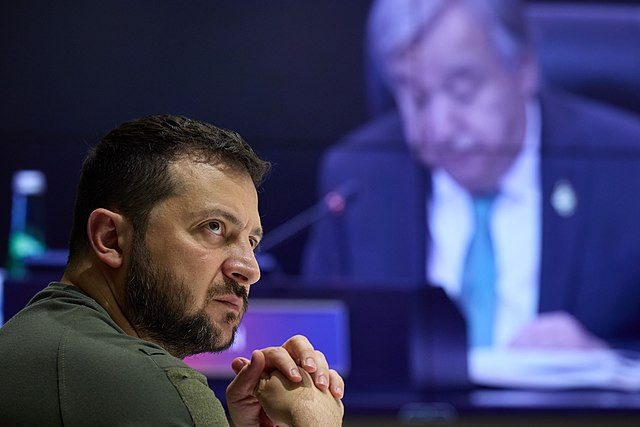Ukraine and its European allies are increasingly looking beyond NATO for security guarantees as uncertainty grows over U.S. commitment to the alliance. At a high-level conference at Cambridge University on Monday, Ukrainian and European officials discussed the possibility of new security structures in response to shifting geopolitical realities. The meeting took place as U.S. and Russian diplomats prepared to negotiate a potential peace framework, with Moscow insisting that NATO formally withdraw its 2008 pledge to admit Ukraine as a future member.
The gathering, titled Firewalling the Future, brought together diplomats, military officials, and academics to examine the evolving security landscape. Dominating the discussions was a sentiment among Ukrainian and Eastern European representatives that the international order is undergoing irreversible change. "No one knows if NATO will be present if things actually happen," said a Ukrainian parliamentarian whose husband is currently serving on the front lines.
The uncertainty has been exacerbated by former President Donald Trump's recent comments suggesting that U.S. protection of NATO allies is no longer automatic. "One of the presidents of a big [NATO] country stood up, said, if we don't pay and we're attacked by Russia, will you protect us? No, I will not protect you, in fact I would encourage [the Russians] to do whatever the hell they want. You gotta pay," Trump told students at Coastal Carolina University in February last year.
Further deepening concerns, U.S. Defense Secretary Pete Hegseth stated earlier this month that "returning to Ukraine's pre-2014 borders is an unrealistic objective" and that NATO membership for Ukraine is unlikely as part of a negotiated settlement. Ukrainian officials expressed skepticism about any peace deal brokered by Washington and Moscow, citing Russia's history of disregarding agreements. "I have been in Mariupol in 2022 and have experienced torture," said a Ukrainian woman who has served on the front lines. "Our enemies are ruthless and so I don't know with whom Trump would like to negotiate."
As Ukraine reevaluates its strategic options, Russian Foreign Minister Sergei Lavrov reiterated Moscow's longstanding demand that NATO permanently abandon its 2008 commitment to eventually admit Ukraine and Georgia. "A refusal to accept Kyiv into NATO is not enough now," Russian Foreign Ministry spokeswoman Maria Zakharova said in Moscow. "The alliance must disavow the Bucharest promises of 2008." Lavrov, speaking after talks with U.S. officials in Riyadh, warned that NATO expansion remains an unacceptable threat to Russian security.
Moscow also dismissed any suggestion that NATO forces could serve as peacekeepers in Ukraine. Lavrov criticized British Prime Minister Keir Starmer's proposal to deploy European forces under a neutral flag, saying, "The appearance of armed forces from the same NATO countries, but under a false flag, under the flag of the European Union or under national flags, does not change anything in this regard. Of course, this is unacceptable to us."
European analysts at the Cambridge conference argued that Ukraine's war effort and future security arrangements will increasingly depend on European rather than transatlantic support. "Europe will almost certainly be stuck with the bill for Ukraine's reconstruction, and may also be stuck with the bill for prosecuting the war, i.e., $70-100 billion a year," said a Romanian security expert.
Some at the conference pointed to Finland's defense model as a possible blueprint for Ukraine and its allies. "It's about creating a coherent threat perception across society, about having all reservists and military industry ready and on board, attending exercises," said a Finnish China expert. "This is giving people confidence. It works really well. Nobody in Finland is afraid of the Russians."
The shifting landscape is not lost on China, which has sought to leverage global instability to its advantage. "China's plan was to divide the American alliance and to cause the Americans to pull away from their networks," the Finnish expert added. "They see that coming true." Beijing had initially anticipated a swift Russian victory that would weaken Ukraine and discredit President Volodymyr Zelenskyy, but the prolonged resistance has complicated China's strategic calculations. "They will now try to position themselves as a peacemaker that never wanted any harm to come to Ukraine," the expert said.
Amid these geopolitical shifts, some Ukrainian officials are pushing for new defense alliances. "In 1985, West Germany had 600,000 troops, France 200,000. The Soviet Union was deterred by Germany and France. The U.S. only provided a nuclear umbrella. After the Cold War, this changed, and it was a mistake," said a Ukrainian parliamentarian, who called for "new alliances to replace the dysfunctional ones."




